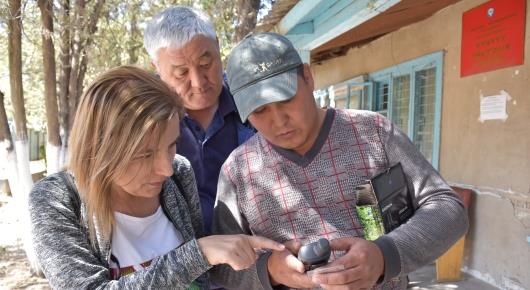FAO event brings digital transformation to agriculture in Central, South-East Europe

Mobile phones, satellites, radio, remote sensing, internet connection, Big Data – a non-exhaustive list tools that have revolutionized our lives in many ways. They could have the same effect on agriculture and food production.
This is the rationale behind an FAO-organized regional e-agriculture forum that starts here today, targeting the countries of Central and South Eastern Europe, where the use of information and communication technologies in food and agriculture is not as widespread as it could be.
Representatives of Albania, Bosnia and Herzegovina, Montenegro, Serbia, The former Yugoslav Republic of Macedonia and Kosovo* will discuss how to move ahead with applying information and communication technologies (ICTs) in agriculture. For three days, they will learn from FAO, other international organizations, countries with more experience, and private-sector representatives.
By definition, e-agriculture involves designing, developing and applying innovative ways to use information and communication technologies – including digital technologies – in the rural domain. The primary focus is on agriculture, including fisheries, forestry and livestock.
“The aim is to boost agriculture and rural development through improved access to information,” said Nevena Alexandrova-Stefanova, FAO agricultural innovation systems and knowledge sharing officer. “This can help people whose livelihoods depend on agriculture make the best possible decisions, and use available resources in the most productive and sustainable manner.”
Agricultural production could become more precise, environmentally-friendly and fast-reacting if digital technologies penetrated this economic sector. It could mean lower information and transaction costs, improved service delivery, new job creation, and easier connections between farmers, producers and consumers.
“Farmers could make good use of information and communication technologies in the planning, production and marketing of their produce,” said Alexandrova-Stefanova. “However, technology gains are not automatic. Adequate policies, infrastructure and regulations, new skills, and accountable institutions need to be in place to ensure that everyone benefits equally and no one is left behind.”
There are also other concerns, too – many related to data: its accessibility, security, and the question of who owns the data generated by machinery on the farm.
To turn e-agriculture ideas into reality, these issues need to be addressed. FAO encourages countries to develop e-agriculture strategies, including a roadmap for implementation, and supports the process with a guide. This has been piloted in the Asia and Pacific region, and in Albania where a single-window or “one-stop-shop” system was developed under an FAO project. The Albania example will be shared with Forum participants.
“We have launched a call for good and promising practices in the use of information and communication technologies for agriculture,” said FAO information and knowledge management officer Sophie Treinen. “FAO wants to take stock of experiences that can be adopted and adapted. It is crucial that countries move from pilot projects to a broader vision at larger scale.”
*References to Kosovo shall be understood to be in the context of Security Council Resolution 1244 (1999).
13 November 2017, Novi Sad, Serbia
